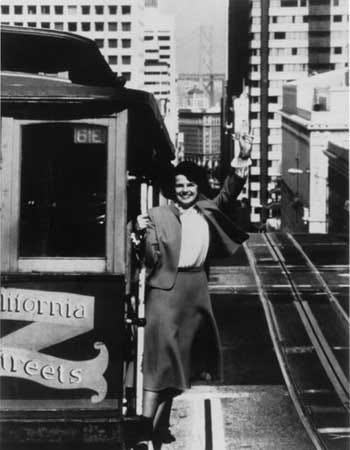It’s Okay to Criticize Feinstein
In a democracy, death is a moment to assess legacies.
California Senator Dianne Feinstein died yesterday. She was 90 and in ill health, and there had been increasing calls for her to step down. Her death also raises major questions for the 2024 California Senate contest. Whoever California Governor Gavin Newsome appoints to the seat is going to have a major advantage in the primary.
Inevitably, therefore, her death touched off a standard issue respectability debate. Some people insisted that we should all talk about Feinstein’s achievements (working on gun control, opposing US torture) in honor of her service to the Senate and in deference to the feelings of her family. Others resurfaced images of a controversy around the flying of the Confederate flag when she was mayor of San Francisco. People remembered her pro Iraq war vote. People mocked Democrats for not encouraging her to retire earlier.
I certainly understand why those who admire Feinstein bristle at people using her death to mock her, or criticize her, or speculate about who is going to get her Senate seat next. But I think that enforcing norms of respect and deference around the death of powerful public figures is (a) impossible and (b) bad for democracy.
People who take powerful positions in government, like Senators, get a lot of perks. As retired Iowa Senator Tom Harkin put it in a recent interview, being a Senator “is addicting. Of course it is. It’s heady. It’s power. You command attention.” Television stations want to interview you; universities schedule you to talk. You have staff people whose whole job is to make you sound smart and perspicacious in public. And you, personally, can affect millions of lives by sponsoring legislation, and individual lives by working for constituents who bring you their problems. If you’re ambitious in a certain way, there’s nothing like being a Senator (except maybe being President.)
But being a Senator comes with some downsides too. You’re in the public eye, and that means people are going to criticize you. Sometimes the criticism will be harsh. And sometimes it will come at difficult times.
That criticism—even at difficult times, even when you die—is part of the job. And it’s crucial to democracy. The First Amendment specifically protects speech people from government interference, because democracies can’t function unless people are allowed to criticize, comment on, and speak against elected officials.
For a couple of reasons, criticism is especially important when sitting elected officials die. First, death is always a time for assessing legacies. Some people want to cement Feinstein as a great politician whose legacy should be preserved and extended. Others who disagreed with her policies and public choices want to encourage politicians to go a different path. There will never be a time when there is this much scrutiny on her past and its meaning. If you choose to live a life where you have a public legacy, you have to expect that people will debate that legacy when you go.
The other reason that it’s important to talk about legacy and politics now is that this is a moment of succession. Elections are usually the process by which democracies replace people in power. But death sometimes intervenes—and when it does, again, that’s a major issue of public interest, and one which is of course going to lead interest groups and party actors to jockey for position. It’s a Senate seat; it’s one of the most important jobs in the republic. Whoever is appointed will have a great deal of influence. The alternative to an open debate is to simply let those in power decide for everyone else—which is not how public decisions are supposed to work in a democracy.
These considerations would be in effect for any politician. They seem especially relevant to Feinstein though. The Senator ran for reelection in 2018, when she was 84. Reports of her mental decline have been circulating for some time, but she’s refused to step down. For better or worse, it seems clear that she made a fairly deliberate choice to stay in the Senate until she simply couldn’t perform her duties, and perhaps even after she couldn’t.
One consequence of that choice is that her death has political consequences and that it’s going to be discussed in a political context. If she hadn’t wanted that, she could have made other decisions. But, again for better or worse, she was a political person. I don’t think it’s disrespectful to remember her as such. But even if it is, it isn’t wrong.



THANK YOU!!! All of this.
Nuts—I keep writing responses and I have to get rid of every one because I'm just so GALLED by the weaksauce incompetence of the Democratic Party and refusal to bully Senate Republicans into whimpering submission like they deserve!
At least Feinstein will most likely get succeeded by a Democrat, thanks to California having a Democratic Governor....